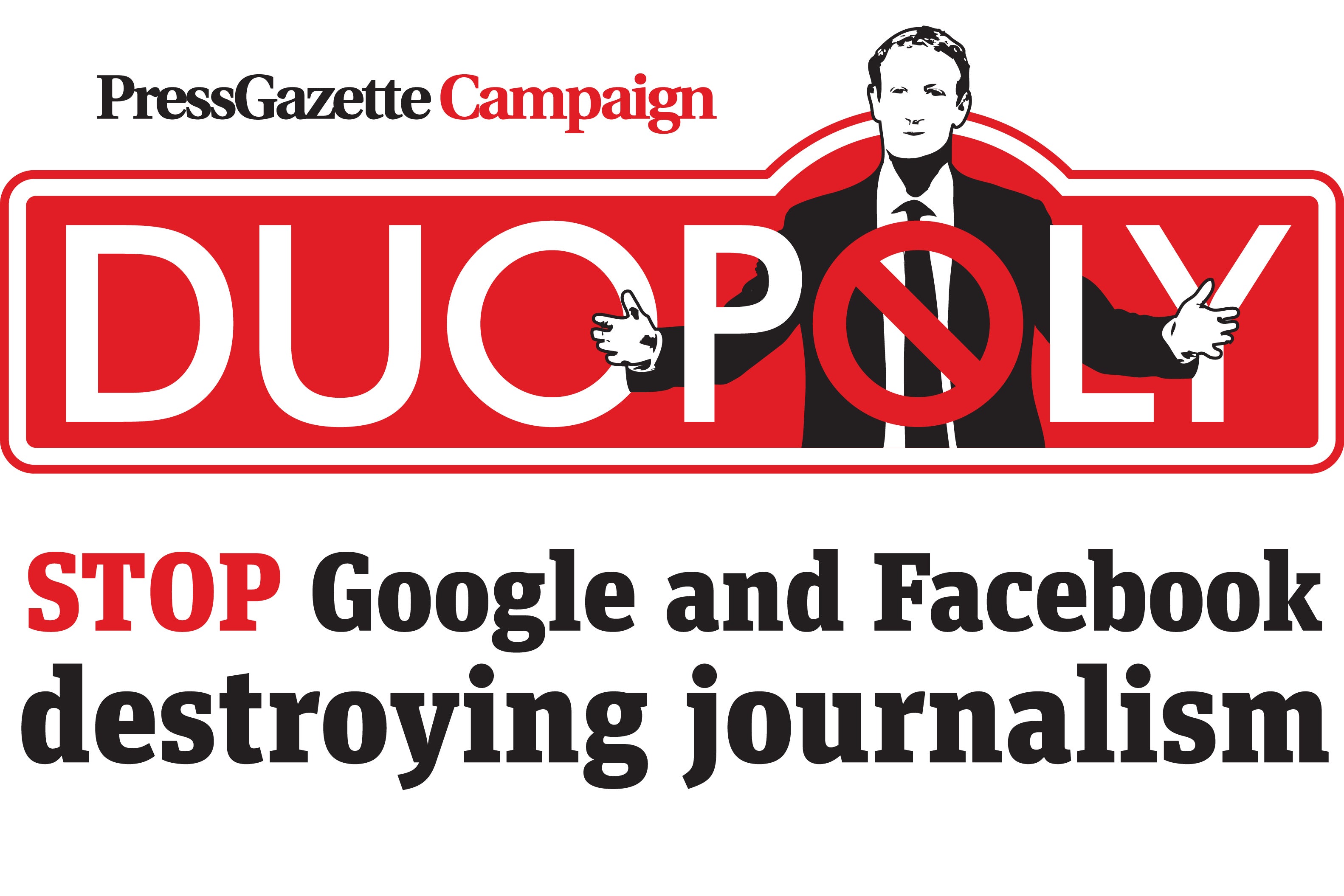
Three and half years ago when Press Gazette launched our Duopoly campaign to “stop Google and Facebook destroying journalism” it was seen as misguided by many.
The tech monopolies may have been hoovering up all the growth in digital advertising, but many publishers preferred to adopt a “frenemies” approach – working with the pair for the traffic they brought and contenting themselves with a shrinking slice of the advertising pie. Few were willing to voice criticism of the Duopoly.
The alarming future we predicted then, with Google and Facebook taking 71% of digital advertising in the UK by 2020, was actually a massive understatement.
According to the Competition and Markets Authority, Google and Facebook took 80% of the UK’s £14bn digital advertising market last year . Google took 90% of search advertising, or around £6.6bn. Facebook took 50% of the display advertising market, or around £2.75bn.
By comparison, the combined spend on online advertising with every content publisher in the UK is less than £1bn a year.
So the announcement that Google is going to spend $1bn over the next three years paying news publishers for content comes not before time. And it comes when the search giant is looking increasingly likely to face greater regulation from governments (as in Australia) who are concerned about their news industries being wiped out.
I’ve always felt that Google and Facebook should reward publishers more generously for the content they supply and do so out of enlightened self-interest. A healthy digital news ecosystem that enables publishers to invest in quality content should benefit all.
Although the creation of the Google News Showcase is a move in the right direction and is to be applauded, it is – in global terms – one small step.
It works out at around £260m a year, or around 4% of what Google makes from search advertising in the UK alone.
Globally, it represents annual expenditure equivalent to around 1% of Google parent company Alphabet’s net profits for 2019.
For publishers it will provide an extra revenue stream (though once that $330m a year has been divvied up globally it is not going to be a game changer).
But this could be a giant leap forward, because it represents an admission that free media platforms like Google are now willing to pay for quality content.
The biggest publishers in the world now are no longer newspaper brands and websites, they are mobile phone companies and digital intermediaries.
These digital platforms are in a fight for attention and they realise that the best way to get an audience coming back day after today is by providing them with quality original content.
The early days of the internet and search rendered news almost worthless as it was shared freely.
We could be about to enter a new phase where the tech giants see the value in journalism and begin competing to provide favourable terms for the creators of the best content.
- For strategic insight into the future of media (and weekly in-depth profiles of the various tech platforms news leaders need to deal with) – sign up for Press Gazette’s new Media Monitor newsletter here:
Email pged@pressgazette.co.uk to point out mistakes, provide story tips or send in a letter for publication on our "Letters Page" blog
